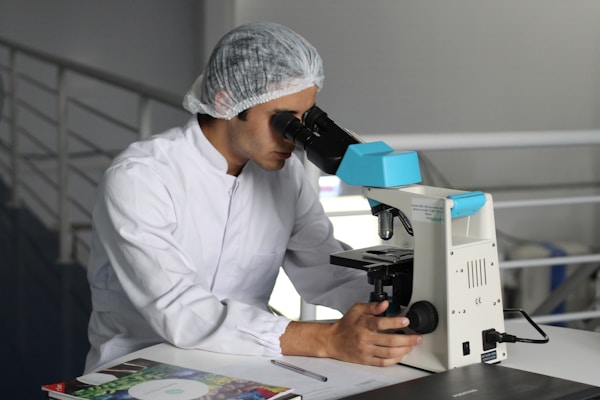Prostate cancer is the most common cancer in men, other than skin cancer. It is estimated that one in seven men will be diagnosed with prostate cancer during their lifetime. While the cause of prostate cancer is attributed to numerous possible factors, there are a number of ways that you can reduce your risk of developing the disease. A healthy lifestyle, including regular exercise and a healthy diet, can reduce your risk of prostate cancer. Let’s take a closer look at prostate cancer and how you can prevent it.
Prostate Cancer
Prostate cancer is a cancerous disease that starts in the prostate gland. The prostate is a small, walnut-sized gland located just below the bladder in men. The prostate helps make semen. Cancer starts when cells in the body begin to grow out of control. Cells in the prostate can grow and form a tumor. A tumor is a mass of cells. Tumors can be cancerous or benign. Cancerous tumors are malignant and can grow and spread to other parts of the body if left untreated.
It is not known exactly what causes prostate cancer, but there are several risk factors believed to increase the likelihood of developing the disease. Some things that may increase your risk of getting prostate cancer include your age, family history, race, diet, and lifestyle choices.
Prevention

It is estimated that about one in nine men will be diagnosed with prostate cancer during their lifetime. Most prostate cancers are found early when they are still confined to the prostate. For this reason, prostate cancer is often treatable. However, there are a few things to consider that might help prevent the disease from forming.
One way is to make sure that you get regular prostate cancer screenings. The American Cancer Society recommends that men begin getting prostate screenings at age 45. However, if you have a family history of prostate cancer, you may want to start getting screened earlier. Another way to help prevent prostate cancer is to eat a healthy diet. Some foods that may help reduce your risk of prostate cancer include fruits, vegetables, and whole grains. It is also important to limit your processed foods and red meat intake. Supplements like prostate support might also benefit your prostate health. Exercise and walking are also believed to help reduce your risk for prostate cancer.
Diagnosis

Prostate cancer is diagnosed through a series of tests and screenings performed in your doctor’s office. One of the most common tests used to screen for prostate cancer is the prostate-specific antigen (PSA) blood test. This test measures the level of PSA in the blood. PSA is a protein produced by the prostate gland. A high PSA level may indicate prostate cancer. Other tests used to diagnose prostate cancer include a digital rectal examination, a transrectal ultrasound, and a biopsy.
The prognosis for prostate cancer usually depends on the stage of cancer. As discussed, most cases of prostate cancer are caught early before there is significant growth and while it is still contained in the prostate. Early-stage prostate cancers have a very good prognosis, with a 5-year survival rate of over 90 percent. However, more advanced prostate cancers have a much poorer prognosis, with a 5-year survival rate of only around 30 percent. It is important to have regular screenings with your doctor to ensure your prostate health.
If prostate cancer is found early, there are many treatment options. However, the goal for both younger and older men is to lower their prostate cancer risk and seek to alter their lifestyle and diet to try and prevent the disease. Making healthy choices and working with your doctor to investigate prostate-targeted supplements can help to ensure a healthy lifestyle.



